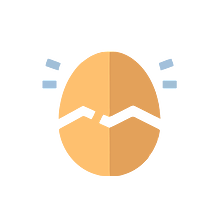Obsidian 插件:Obsidian Charts 为 Obsidian 中的笔记增加一个图表功能
概述
为 Obsidian 中的笔记增加一个图表功能,将表格快速转化为图表,包含折线图,柱状图,饼图等等多种形式,使用 chart.js 和 dataviewjs 可以实现更多数据的绘图。
插件名片
使用
基础格式
这些内容是每个图表类型都需要的基本元素
type: //类型选择
labels: [] //内容项
series: //数据项
- title: "" //数据标题
data: [] //数据
- title: "" //数据标题2
data: [] //数据2
修饰符: xxx不同图表类型
常见图表类型的基础语法
柱状图
type: bar
labels: [内容1,内容2,内容3]
series:
- title: 数据1
data: [2,4,3]
width: 70%
labelColors: true折线图
type: line
labels: [内容1,内容2,内容3]
series:
- title: 数据1
data: [2,4,3]
width: 70%
labelColors: true饼图
type: pie
labels: [内容1,内容2,内容3]
series:
- title: 数据1
data: [2,4,3]
width: 40%
labelColors: true圆环图
type: doughnut
labels: [内容1,内容2,内容3]
series:
- title: 数据1
data: [2,4,3]
width: 40%
labelColors: true雷达图
type: radar
labels: [内容1,内容2,内容3]
series:
- title: 数据1
data: [2,4,3]
width: 40%
labelColors: true极地图
type: polarArea
labels: [内容1,内容2,内容3]
series:
- title: 数据1
data: [2,4,3]
width: 40%
labelColors: true命令菜单
- Obsidian Charts: Create Chart from Table (Column orientedLayout):将表格转化为图谱,按行
- Obsidian Charts: Create Chart from Table (Row orientedLayout):按列
- Obsidian Charts: Create Image from Chart:将图表转化为图片插入
- Obsidian Charts: Insert new Chart:可视化插入一个图表。
设置菜单
- Show Button in Context Menu:在编辑器菜单增加一个插入图表的命令。
- Enable Theme Colors:使用主题或 css 的颜色
- lmage Format:插入图片的格式
- lmage Quality:插入图片的质量
修饰语
width
限制图表宽度大小,默认 100%
type: bar
id: table-001
width: 90%fill
填充折线图下的轨迹,默认 false 不填充。(true/false)
type: line
id: table-001
width: 80%
fill: truebestFit
在折线图中用于生成最适合给定折线的线
- bestFit:true/false:是否生成最适合的折线。
- bestFitTitle:” 文本 ” 指定最适合折线的标题
- bestFitNumber:行索引,从 0 开始。指定哪一行的数据
type: line
labels: [Monday,Tuesday,Wednesday,Thursday,Friday]
series:
- title: Title 1
data: [1,2,1,4,5]
- title: Title 2
data: [5,8,6,7,6]
- title: Title 3
data: [8,6,5,3,4]
bestFit: true
bestFitTitle: "名称"
bestFitNumber: 1
width: 80%spanGaps
跳过缺失的数据进行绘图
type: line
labels: [内容1,内容2,内容3,内容4,内容5]
series:
- title: 缺失数据
data: [3,null,5,null,3]
- title: 正常数据
data: [2,3,4,3,2]
width: 70%
spanGaps: truetension
折线图的平滑度(0~1)
type: line
id: table-001
width: 80%
tension: 0.8beginAtZero
强制将图表设置为从 0 开始,否则将剪掉所有未使用的空间。
type: line
labels: [内容1,内容2,内容3,内容4,内容5]
series:
- title: 最小为2的数据
data: [2,3,4,3,2]
width: 70%
beginAtZero: truelegend
图例修饰
- legend: false/true 是否显示图例
- legendPosition:top/left/bottom/right 图例的显示位置
type: line
id: table-001
width: 80%
legendPosition: bottomindexAxis
设定坐标轴(x/y)
type: bar
id: table-001
width: 80%
indexAxis: ystacked
堆叠展示数据。
type: bar
id: table-001
width: 80%
stacked: trueTitle
- x/yTitle:设置 x 轴/y 轴标题
type: bar
id: table-001
width: 80%
xTitle: "x标题"
yTitle: "y标题"Reverse
- x/yReverse:反转它所应用的轴,交换正负位置
type: bar
id: table-001
width: 80%
yReverse: trueMin/Max
指定轴的最小值和最大值
xMaxyMinMinrMax
type: line
id: table-001
width: 80%
yMax: 10Display
- Display:轴是否可见
- TickDisplay:轴刻度是否可见
type: line
id: table-001
width: 80%
yDisplay: false
xTickDisplay: falsetime
将 X 轴上使用日期的按照时间长度进行组织。(day,week,month,year)
type: line
labels: [2023-01-01,2023-02-02,2023-02-15,2023-03-04,2023-04-05]
series:
- title: Title 1
data: [4,2,3,4,5]
- title: Title 2
data: [5,4,3,2,2]
time: weektransparency
覆盖图表元素的内部的不透明度(0~1)默认 0.25
type: line
id: table-001
width: 80%
transparency: 0.9美化
通过 css 代码 设置图表样式
:root {
--chart-color-1: #ff00ff;
--chart-color-x: rgb(255,255,255);
}使用 Dataview 数据绘图
数据
呈现 3 个内容,每个内容包含 2 个值域
- 内容一:: 内容 1
- 数据甲一:: 10
- 数据乙一:: 13
- 内容二:: 内容 2
- 数据甲二:: 14
- 数据乙二:: 12
- 内容三:: 内容 3
- 数据甲三:: 12
- 数据乙三:: 15
API 方法
使用标准的 Chart.js中文网 数据和其中支持的所有内容。
const file = dv.current() //以当前文件数据为例子
const chartData = { //定义chart的内容
type: 'line', //类型
data: { //数据参数
labels: [file.内容一,file.内容二,file.内容三], //查找内容项
datasets: [
//数据1
{
label: ["数据1"],
data: [file.数据甲一,file.数据甲二,file.数据甲三],
borderColor: '#36A2EB',//边颜色
backgroundColor: '#9BD0F5',//背景色
borderWidth: 1 ,//边宽度
},
//数据2
{
label: ["数据2"],
data: [file.数据乙一,file.数据乙二,file.数据乙三],
borderColor: '#fffddd',//边颜色
backgroundColor: '#fffddd',//背景色
borderWidth: 1 ,//边宽度
}],
},
options: { //其余chart.js控制
maintainAspectRatio: false, // 不保持纵横比
aspectRatio: 2, // 宽高比例为2:1
layout: {
padding: {
left: 20,
right: 20,
top: 20,
bottom: 20
}
},
plugins: {
legend: {
display: true,
position: 'bottom' // 图例显示在底部
}
}
}
}
window.renderChart(chartData, this.container);//调取接口代码块方法
const file = dv.current() //以当前文件数据为例子
dv.paragraph(`\`\`\`chart //渲染一个代码块
type: bar
labels: [${file.内容一},${file.内容二},${file.内容三}]
series:
- title: 数据1
data: [${file.数据甲一},${file.数据甲二},${file.数据甲三}]
- title: 数据2
data: [${file.数据乙一},${file.数据乙二},${file.数据乙三}]
width: 80%
\`\`\``)表格数据绘图
数据表格
| 数据 | 正常数据 | 含负数据 | 含空数据 |
|---|---|---|---|
| 数据 1 | 1 | 4 | 2 |
| 数据 2 | 2 | 3 | |
| 数据 3 | 5 | -2 | 4 |
| 数据 4 | 3 | 5 | |
| 数据 5 | 4 | 3 | 1 |
| 数据 6 | 5 | -1 | 3 |
假设这里引用成 ^table-001
id 引用法
在表格下添加块 id^table-001,然后
type: bar //选择类型
id: table-001 //输入块id
file: 文件夹/路径/文化.md //输入文件名或者路径使用其他文件下的块,默认当前文件
layout: rows/columns //选择内容是行或者列,默认为行
select: [内容1,内容3] //选择指定内容,默认全部命令法
鼠标选择表格后,运行 chart 命令进行替换为图表。
其他参考
讨论
若阁下有独到的见解或新颖的想法,诚邀您在文章下方留言,与大家共同探讨。
反馈交流
其他渠道
版权声明
版权声明:所有 PKMer 文章如果需要转载,请附上原文出处链接。



